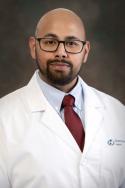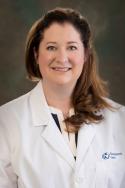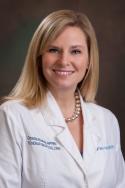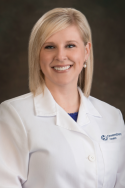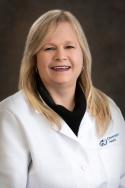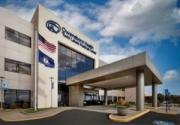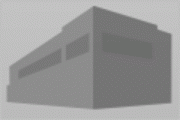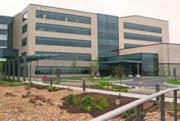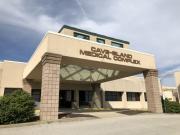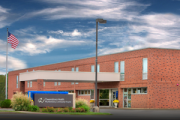Sleep Medicine Program
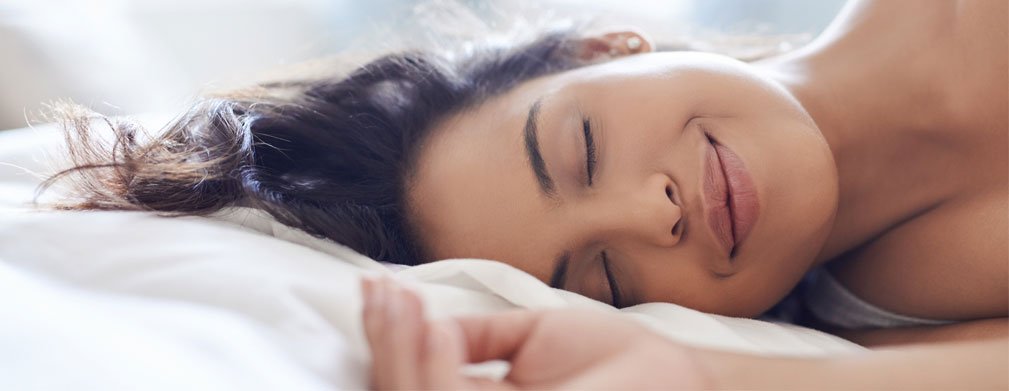
If you’re among the 40 million Americans who often have trouble sleeping, consider asking your doctor for a referral to the Owensboro Health Sleep Medicine Program. The most commonly encountered sleep medicine problems include obstructive sleep apnea, insufficient sleep syndrome, and poor sleep hygiene. With a sleep medicine consultation and possibly a sleep study, you will experience a timely evaluation and receive treatment recommendations that help you rest easier.
The sooner your provider can diagnose the sleep condition you have, the sooner you can seek treatment and get a good night's rest, which can lead to improved emotional and physical health.
How to get a sleep study
Ask your doctor for a referral to Owensboro Health’s Sleep Lab for a sleep study, studies must be ordered by a physician, nurse practitioner, or physician assistant. To schedule your sleep study, call one of our locations.
Do I need a sleep study?
A sleep study helps our physician diagnose your condition and create a personalized treatment plan. You may benefit from a sleep study if you experience symptoms such as:
- Snoring, fatigue, and/or unexplained high blood pressure.
- A tendency to fall asleep during the daytime, or feeling very drowsy during the day.
- Nocturnal choking, gasping or snorting.
- Nighttime reflux, or heartburn that is refractory to therapy.
Types of Sleep Studies
Your provider may refer you to Owensboro Health Sleep Lab for one or more of these studies.
- Polysomnogram (PSG) - records your sleep and bodily activity overnight.
- Multiple sleep latency
test (MSLT) – this test, which follows an overnight polysomnogram, consists of five nap opportunities. We look for changes consistent with narcolepsy. - Home sleep apnea test (HSAT) – we teach you to use portable monitors in your home setting to document sleep variables.
- Actigraphy – 24-hour motion monitoring per a watch-like device
- Maintenance of Wakefulness Test (MWT) – tests the ability to stay awake
What happens in a sleep study?
During a polysomnogram, you will spend your sleep time in our private hotel-quality room with queen size bed, private bathroom, and shower. A technician will apply small monitoring devices to your chest, nose, finger, face, and scalp to measure vital signs, important variables, and eye activity during sleep.
Your movements are monitored by video camera. Usually, six hours of sleep is required to make a diagnosis. You are able to awaken any time you would like, so that you may go to work, school, or begin your usual daily activity.
Benefits of a Sleep Study
According to the National Institutes of Health, 50 to 70 million individuals are affected by chronic sleep disorders such as apnea, narcolepsy, restless leg syndrome among others. These disorders can be linked to heart disease, hypertension, stroke, diabetes and other chronic diseases.
The sooner your provider can diagnose the sleep condition you have, the sooner you can seek treatment and get a good night's rest, which can lead to improved emotional and physical health.
Accredited by the American Academy of Sleep Medicine
This accreditation means that we have demonstrated a commitment to the highest quality of care in the diagnosis and treatment of sleep disorders. Accredited facilities have a board-certified sleep medicine physician, who leads a sleep team of trained health care professionals. To become accredited by the American Academy of Sleep Medicine, sleep centers must comply with the AASM Standards for Accreditation, the gold standard for patient care in the sleep field. These requirements incorporate the latest diagnostic and treatment advances, and the standards ensure that sleep centers provide high quality, patient-centered care.
